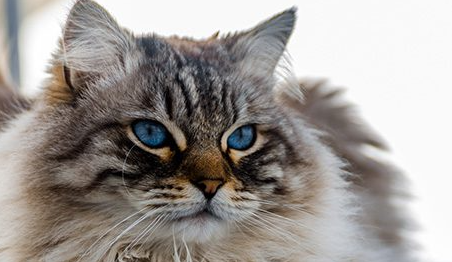Stereotypical cat names are an integral part of pet culture, reflecting not only the personality and characteristics of the feline but also the preferences and creativity of the pet owner. From classic names like “Whiskers” and “Shadow” to more modern trends inspired by pop culture, these names encapsulate a blend of tradition and contemporary influences. This article delves into the world of stereotypical cat names, exploring their origins, popularity, and the factors that influence their selection. Whether you’re a new cat owner looking for the perfect name or just curious about the trends in cat naming, this comprehensive guide provides a deep dive into the fascinating realm of feline monikers.

The Evolution of Cat Names
Historical Background
Cats have been domesticated for thousands of years, and their names have evolved alongside human cultures. In ancient Egypt, cats were revered, and names like “Bastet” (after the cat goddess) were common. Moving through the centuries, the naming conventions for cats have varied, influenced by local languages, cultures, and societal changes.
Influence of Literature and Media
The rise of literature and media has significantly shaped the landscape of cat names. Classic literature, such as “Alice in Wonderland” with the Cheshire Cat, and more contemporary works, like the “Harry Potter” series with Crookshanks, have left a lasting impact. Additionally, animated movies and TV shows, such as “Tom and Jerry” and “Garfield,” have introduced characters whose names have become household staples.
Popular Stereotypical Cat Names
Classic Names
Some cat names have stood the test of time, maintaining their popularity across generations. Names like “Whiskers,” “Fluffy,” “Shadow,” and “Midnight” are often chosen for their simplicity and the ease with which they capture quintessential feline traits.
Modern Trends
Modern trends in cat naming often reflect current pop culture, technology, and social media influences. Names like “Luna,” “Bella,” “Simba,” and “Nala” have surged in popularity, partly due to their presence in popular movies and series. Social media platforms, where pets often become minor celebrities, also play a role in popularizing certain names.
Factors Influencing Cat Name Choices
Personality and Appearance
One of the primary factors in choosing a cat’s name is its personality and appearance. Owners often select names that reflect the cat’s physical characteristics (e.g., “Snowball” for a white cat) or its behavior (e.g., “Sassy” for a playful or mischievous cat).
Cultural and Regional Influences
Cultural and regional influences heavily dictate naming conventions. For example, in Japan, it’s common to find cats named “Mochi” or “Sora,” while in English-speaking countries, names like “Tiger” and “Mittens” are more prevalent.
Personal Preferences
Personal preferences and experiences also play a crucial role. Owners might name their cats after beloved characters, historical figures, or even favorite foods. This personalization adds a unique touch to each name, making it special to the owner and pet alike.
The Impact of Stereotypical Names on Cats
Social Perception
Stereotypical cat names can influence how a cat is perceived by others. Names like “Tiger” or “Lion” might evoke a sense of strength and wildness, whereas names like “Whiskers” or “Pudding” might elicit feelings of cuteness and domesticity.
Interaction and Training
The choice of name can also affect how a cat responds to training and interaction. Short, clear names with distinct sounds are generally easier for cats to recognize and respond to, which can be beneficial in training and daily communication.
Popular Cat Names by Category
| Category | Names |
|---|---|
| Classic | Whiskers, Fluffy, Shadow, Midnight |
| Modern | Luna, Bella, Simba, Nala |
| Appearance-based | Snowball, Tiger, Blackie, Ginger |
| Personality-based | Sassy, Cuddles, Mischief, Purrcy |
| Cultural | Mochi, Sora, Bastet, Cleo |
| Pop Culture | Crookshanks, Cheshire, Tom, Garfield |
Adding Visual Appeal
To enhance the engagement and visual appeal of this article, incorporating images and graphics related to cat names can be very effective. For example, an image of a cat with a stereotypical name like “Fluffy” can be paired with a brief description of why such names are timeless. Graphical representations, such as pie charts showing the popularity of different names over time, can also add value.
Conclusion
Stereotypical cat names are a delightful reflection of the ever-evolving relationship between humans and their feline companions. From classic names rooted in history to modern names influenced by pop culture, these names encapsulate the diversity and creativity of cat owners worldwide. Whether influenced by a cat’s personality, appearance, or cultural trends, the names we choose for our feline friends carry significant meaning and charm.
FAQs
Why do classic cat names remain popular?
Classic cat names remain popular due to their simplicity, ease of recognition by the cat, and the timeless qualities they embody. Names like “Whiskers” and “Shadow” have universal appeal and are easy to remember and pronounce.
How do cultural influences affect cat naming?
Cultural influences affect cat naming by introducing names that are reflective of local languages, traditions, and popular media. For example, Japanese culture often inspires names like “Mochi” and “Sora,” while Western cultures may favor names like “Simba” and “Bella.”
Can a cat’s name impact its behavior?
While a cat’s name itself does not directly impact behavior, names that are short and distinct can make training and communication more effective. Cats are more likely to respond to names that are easy to recognize and pronounce.
Are modern cat names more popular than classic ones?
Modern cat names are increasingly popular, especially those influenced by current trends in media and pop culture. However, classic names still hold a significant place due to their enduring charm and simplicity.
What are some tips for choosing the perfect cat name?
When choosing a cat name, consider the cat’s personality, appearance, and your personal preferences. Opt for names that are easy to pronounce and recognize. Additionally, think about names that reflect your cat’s unique traits and your own interests or cultural background.
Additional Resources
Review this article carefully to ensure it meets the required standards and correct any spelling or grammatical errors. This comprehensive guide aims to provide valuable insights into the world of stereotypical cat names, making it a useful resource for cat owners and enthusiasts alike.






